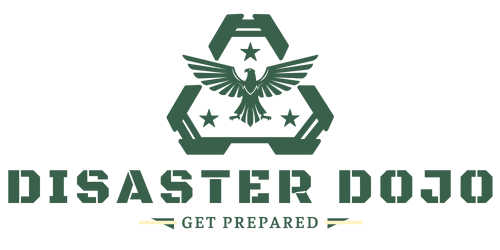In a world where uncertainty and unpredictability seem to be the norm, it has become crucial to prioritize building security for both today and the future. The concept of security goes beyond just financial stability; it encompasses every aspect of our lives, ensuring our well-being and the resilience of our communities. As we navigate through the challenges of the present and prepare for an uncertain post-collapse marketplace, it is vital to adopt a proactive approach in safeguarding our future. In this article, you will discover practical strategies and valuable insights to help you build security, not just for today, but also for the unforeseen times ahead. So, let’s embark on this journey together, exploring the path towards a more secure and resilient future.
Understanding the Importance of Security
In today’s uncertain world, security has become a paramount concern. It is crucial to recognize the current global uncertainties and realize the potential risks and challenges that may arise in the post-collapse marketplace. Understanding the necessity of proactive security measures is essential in order to safeguard ourselves, our businesses, and our communities.
Physical Security Measures
Investing in high-quality locks and security systems is a fundamental step in ensuring physical security. By installing reliable surveillance cameras, you can monitor your premises and deter potential threats. Securing entrances and exits effectively restricts unauthorized access, and establishing secure perimeters adds an additional layer of protection. Training security personnel ensures that they are well-equipped to handle any security situation that may arise.
Cybersecurity Measures
With the increasing reliance on digital platforms, cybersecurity has become a paramount concern for businesses and individuals alike. Implementing strong and unique passwords is the first line of defense against unauthorized access. Installing reliable antivirus and firewall software helps in detecting and preventing cyber threats. Regularly updating software and systems is crucial to patch any identified vulnerabilities. Educating employees about phishing and social engineering attacks ensures that they can identify and avoid potential risks. Conducting regular security audits and vulnerability assessments helps in identifying and addressing any potential weaknesses in your digital infrastructure.

Financial Security Strategies
Financial security is vital to protect our assets and investments. Diversifying investments reduces the risk of losing everything in case of a market downturn. Keeping emergency funds in secure accounts ensures that you have a safety net in times of financial crisis. Regularly monitoring financial statements helps in detecting any fraudulent activities or discrepancies. Implementing multi-factor authentication for financial transactions adds an extra layer of security. Utilizing secure payment gateways protects sensitive financial information during online transactions.
Supply Chain Security
In an interconnected world, supply chain security is crucial to ensure smooth business operations. Verifying the authenticity and reliability of suppliers is essential to mitigate the risks of counterfeit or substandard products. Implementing robust supply chain risk management ensures that any potential vulnerabilities are identified and addressed. Utilizing tracking and monitoring systems enables you to trace the movement of goods and detect any anomalies. Maintaining backup suppliers helps in mitigating disruptions caused by unforeseen circumstances. Regularly conducting supplier audits helps in ensuring compliance and maintaining the integrity of your supply chain.

Communication Security
Secure and private communication is of utmost importance in today’s digital age. Employing encrypted communication channels ensures that your sensitive information remains confidential. Implementing secure messaging applications provides an additional layer of protection for your conversations. Conducting regular security training for employees equips them with the knowledge to identify and handle potential communication breaches. Securing remote access to networks safeguards against unauthorized access. Monitoring and detecting potential communication breaches quickly helps in mitigating any potential damages.
Physical and Mental Preparedness
Physical and mental preparedness is not only crucial for personal safety but also for resilience in times of crisis. Storing essential supplies and resources ensures that you are prepared for emergencies. Learning self-defense techniques empowers you to protect yourself and others if the need arises. Training in basic medical skills equips you to handle medical emergencies until professional help arrives. Developing contingency plans for emergencies helps in ensuring a swift and efficient response. Maintaining mental resilience and adaptability enables you to navigate through difficult situations with confidence.

Collaboration and Information Sharing
In a world where threats are evolving rapidly, collaboration and information sharing are essential for collective security. Establishing partnerships with trusted organizations allows for a pooling of resources and knowledge. Sharing information about potential threats and vulnerabilities enables others to take proactive measures. Participating in industry-specific information sharing forums fosters a community-driven approach towards security. Collaborating with law enforcement agencies ensures a coordinated response to security challenges. Engaging in community-driven security initiatives strengthens the bonds within a community and enhances overall security.
Legal Considerations
When implementing security measures, it is vital to consider the legal framework and adhere to relevant regulations and privacy laws. Understanding the legal framework helps in ensuring compliance and avoiding any legal pitfalls. Consulting legal professionals for risk assessment provides valuable insights into potential legal challenges and liabilities. Protecting intellectual property rights safeguards your innovations and ideas from unauthorized use. Mitigating liabilities and legal risks protects you and your organization from potential financial and reputational damages.

Continuous Evaluation and Improvement
Security is an ongoing process that requires continuous evaluation and improvement. Regularly reviewing and updating security protocols helps in adapting to evolving threats. Monitoring emerging security threats and trends provides valuable insights into new risks that may arise. Conducting security drills and exercises prepares you and your team for potential emergencies. Seeking feedback from employees and stakeholders allows for insights and suggestions for improvement. Incorporating lessons learned from any security incidents or breaches helps in fortifying your security strategies and protocols.
Building security for today and the post-collapse marketplace is a multifaceted task that requires a comprehensive approach. By understanding the importance of security and implementing proactive measures in physical security, cybersecurity, financial security, supply chain security, communication security, and personal preparedness, we can create a safer and more resilient world. Collaboration, compliance with legal regulations, and continuous evaluation and improvement are key components in building robust security strategies. Let us work together to ensure a secure future for ourselves, our businesses, and our communities.


